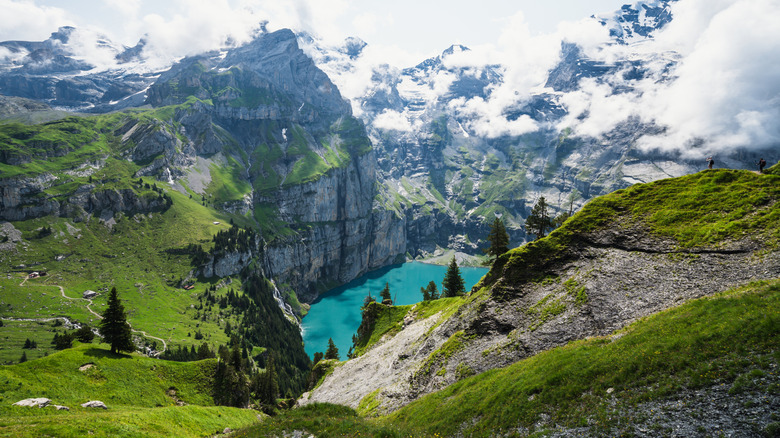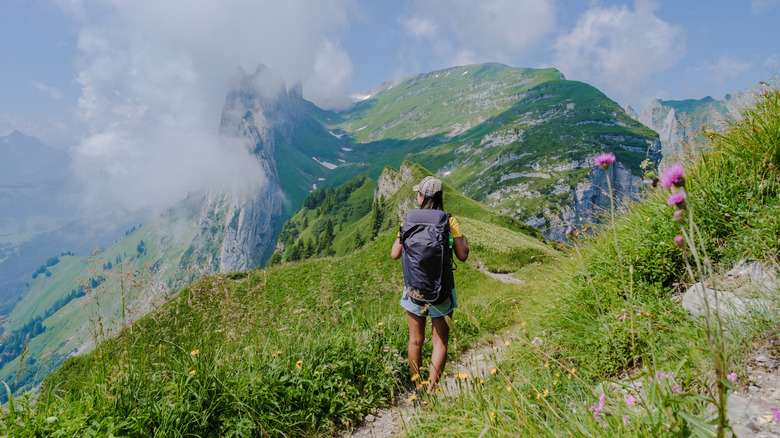This Unspoken Rule Of Hiking Is Actually Expected When Hitting The Trails In Switzerland
Known for its sprawling mountain peaks, world-class skiing, and beautiful outdoor trails, Switzerland is a destination where you'll definitely want to get outdoors. Whether you're hiking the Lake Oeschinen Loop or the Northface Trail Mürren, you're bound to run into some locals along the way. Before you travel to Switzerland, it's wise to familiarize yourself with the etiquette you'll need when you're out and about. Be cautious of the clothes you pack for Switzerland, brush up on train etiquette, and master all of the restaurant rules. After all, there's nothing worse than awkwardly blundering your way through an interaction with the locals.
When wandering a Swiss trail, you may realize that every person you pass will greet you in some way. You may feel flattered that you look like the friendliest person on the trail, but this is actually expected when hiking in Switzerland. In the mountains, it's polite to greet people along the trails, no matter if you're simply walking along a beginner path or if you're trying to surmount a particularly challenging trail, which is one of the reasons tourists need to be extra careful while hiking. But that begs the question: How do you say hello without seeming clueless?
Greet Swiss people like a local
Depending on what part of Switzerland you visit, there are several ways to say hello. "Grüezi" is a common way to greet people in the Swiss-German dialect. If you want to get more specific based on your location, however, you can greet hikers with different iterations of "hello." Since German is the most frequently spoken language in the country, "hoi" or "hallo" are both safe bets. These are common greetings in the predominantly Swiss-German-speaking areas, such as the Canton of Zurich. In the western part of Switzerland, you can greet French hikers with "bonjour," and in southern areas like Ticino, you can greet Italian-speaking hikers with a "ciao." Of course, it's best to take the lead from locals — if they greet you in a certain language, take their cue and use that same greeting.
While travelers are expected to be friendly on the hiking trails and in rural areas of Switzerland, the opposite is true for denser regions. In the more urban areas of the country, you'll want to keep to yourself, as locals may find it strange if you try to strike up a conversation in a grocery store or shop. Tourists may experience the so-called "Swiss directness" if they attempt to start chit-chatting in a populated area. This is another time when you can take cues from locals: If they don't greet you, it probably means you're not in a place where greetings are expected.

